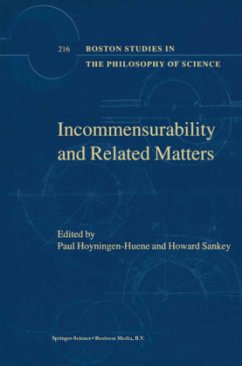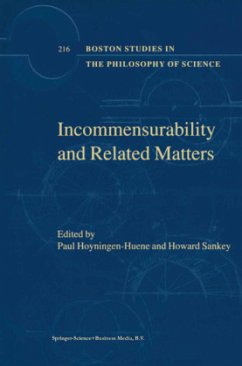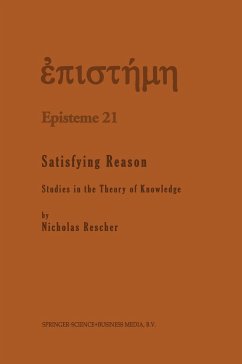
Reference, Truth and Conceptual Schemes
A Defense of Internal Realism
Versandkostenfrei!
Versandfertig in 6-10 Tagen
76,99 €
inkl. MwSt.
Weitere Ausgaben:

PAYBACK Punkte
38 °P sammeln!
1. HISTORICAL BACKGROUND The purpose of the book is to develop internal realism, the metaphysical-episte mological doctrine initiated by Hilary Putnam (Reason, Truth and History, "Introduction", Many Faces). In doing so I shall rely - sometimes quite heavily - on the notion of conceptual scheme. I shall use the notion in a somewhat idiosyncratic way, which, however, has some affinities with the ways the notion has been used during its history. So I shall start by sketching the history of the notion. This will provide some background, and it will also give opportunity to raise some of the most ...
1. HISTORICAL BACKGROUND The purpose of the book is to develop internal realism, the metaphysical-episte mological doctrine initiated by Hilary Putnam (Reason, Truth and History, "Introduction", Many Faces). In doing so I shall rely - sometimes quite heavily - on the notion of conceptual scheme. I shall use the notion in a somewhat idiosyncratic way, which, however, has some affinities with the ways the notion has been used during its history. So I shall start by sketching the history of the notion. This will provide some background, and it will also give opportunity to raise some of the most important problems I will have to solve in the later chapters. The story starts with Kant. Kant thought that the world as we know it, the world of tables, chairs and hippopotami, is constituted in part by the human mind. His cen tral argument relied on an analysis of space and time, and presupposed his famous doctrine that knowledge cannot extend beyond all possible experience. It is a central property of experience - he claimed - that it is structured spatially and temporally. However, for various reasons, space and time cannot be features of the world, as it is independently of our experience. So he concluded that they must be the forms of human sensibility, i. e. necessary ingredients of the way things appear to our senses.














